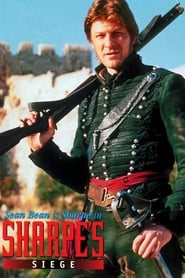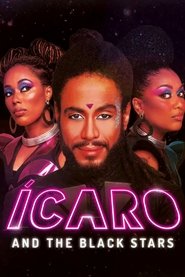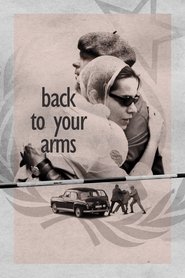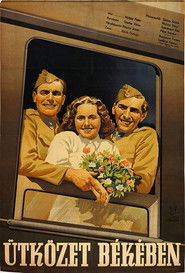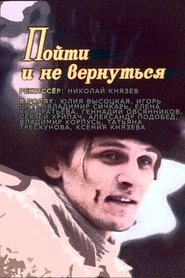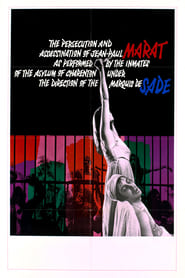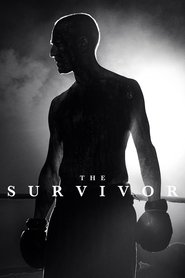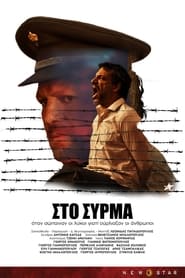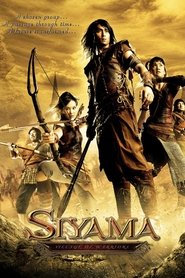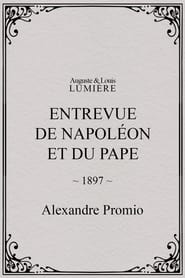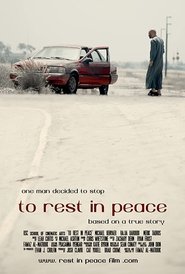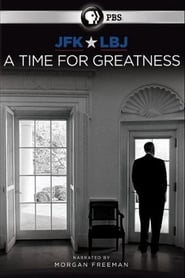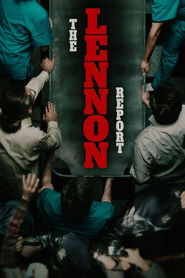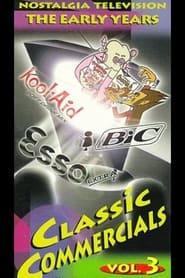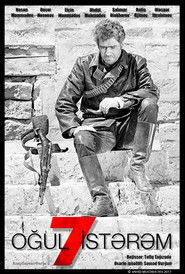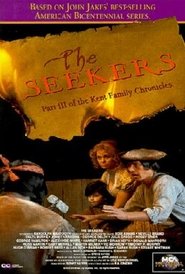Popular History Movies - Page 292
-
Sharpe's Siege
1996
Sharpe's Siege
1996
star 7.2Sharpe, with his new commanding officer, is sent to capture a castle when news comes of locals who will rise against Bonaparte. However, he is somewhat distracted by thoughts of his wife whom he was forced to leave while stricken with fever. -
His Most Serene Highness
2000
star 6.2This historical drama depicts the waning days of the life of Antonio Lopez de Santa Anna, who waged a war against the United States that ultimately cost his nation half of its territory -
Ícaro and the Black Stars
2020
In a fun, electrifying show, singing and telling successes from the history of Black Music, the artist brings the sound of Michael Jackson, Bob Marley, Tim Maia, Wilson Simonal, Beyoncé, James Brown and other stars to the public. On the stage, alongside Cássia Raquel and Hananza, the black stars, Ícaro tells stories lived by these idols as well as their their personal lives. -
Back to Your Arms
2010
Back to Your Arms
2010
star 61961. Father and daughter, separated during World War II, are trying to meet in Berlin. He comes to Berlin from Soviet Lithuania, she comes from the USA. Even if the Berlin Wall has not been built yet, the Cold War is coming close to its apogee. Political and geographical situation, that seemed to be favorable in the beginning, turns out to be deceptive. After his arrival, the father is looked after by KGB intelligence agents. They, using him as bait, are trying to lure the daughter to the east side. Affected by the citie's atmospehere that's pervated with distrust, she is afraid to cross the West Berlin boundary. Trying to save each other from the possible trap, father and daughter are ready to give up the idea of the so much desired meeting... -
Battle in Peace
1952
Battle in Peace
1952
András Beke, a tractor driver, enlists as a conscript, but he does not want to accept the army's rules and regulations, he wants to show that he is an individual here too. During the marching drill, he goes on an exploratory expedition, drinks from the forbidden water and commits other offences. But the educational punishments make him realise that in the army, instead of being a hero, you have to learn, work hard, stand up for yourself and show solidarity. His re-education is aided by his commanders and peers, but love also plays an important role... -
Marat/Sade
1967
Marat/Sade
1967
star 6.1In Charenton Asylum, the Marquis de Sade directs a play about Jean Paul Marat's death, using the patients as actors. Based on 'The Persecution and Assassination of Jean-Paul Marat as Performed by the Inmates of the Asylum of Charenton Under the Direction of the Marquis de Sade', a 1963 play by Peter Weiss. -
The Survivor
2022
The Survivor
2022
star 6.8Harry Haft is a boxer who fought fellow prisoners in the concentration camps to survive. Haunted by the memories and his guilt, he attempts to use high-profile fights against boxing legends like Rocky Marciano as a way to find his first love again. -
In Syrm
2022
In Syrm
2022
In 1948, Dimitris, whose wife is expecting their first son, is exiled to Makronissos. There, the cruel torturer Kothras bets that he will "break" him so that he will sign a statement of repentance, but Dimitris resists fiercely. -
Washington at Valley Forge
1914
The great awakening in the Colonies in the spring of 1775; the patriotic activities of Samuel Adams and John Hancock; the midnight ride of Paul Revere; the gathering of the Minute Men and the battle of Lexington, all these important details of Colonial history are shown as a prelude to the intense war romance woven around the situation at Valley Forge during the terrible winter of 1777, when the cause of Liberty looked next to Betty, daughter of a Minute Man who was killed in the battle of Lexington, is stopping at the inn of her uncle, a Tory sympathizer, near the winter camp of Washington's army at Valley Forge. -
Siyama: Village of Warriors
2008
star 5.4Three young lives from the present are mysteriously destined to travel back in time through a portal to an old forgotten city. It is an era of civil war among the people of Siam where the fight is to protect the capital city of Ayuthaya from being conquered and overthrown. -
Interview Between Napoleon and the Pope
1897
star 4This reconstruction refers to a meeting that allegedly took place on 25 November 1804 at Fontainebleau between Pope Pius VII and Napoleon to discuss the coronation. -
To Rest in Peace
2011
To Rest in Peace
2011
Occupied Kuwait, 1990. Two dead bodies lie in the street. Day after day, everyone passes them by, afraid to stop. Except one man. -
JFK & LBJ: A Time for Greatness
2015
star 6How U.S. President Lyndon B. Johnson used his political prowess to make the Civil Rights Act of 1964 and the Voting Rights Act of 1965 happen. The story is told using rarely-seen footage, interviews and secret White House tapes. -
The Lennon Report
2016
The Lennon Report
2016
star 6.1The events on the night John Lennon was killed, seen through the eyes of those who lived it. The great men and women of NYC who did all they could to save a life, some without even knowing it was John Lennon himself. Based on a true story. -
Classic Commercials: Volume 3
1998
Bing Crosby, Andy Griffith, John Wayne and Mark Hamill are just some of Hollywood's famous faces who add their star appeal to these commercials. Another approach used by broadcast advertisers demonstrated here is to link a product to personal traits the consumer desires. This is comically applied to a Cat Chow spot: thanks to this cat food brand, the weakest kitty on the beach gains the strength to stand up to his bullying competition. Meanwhile, laughs abound in a car showroom where the long-suffering Coyote still can't catch the Roadrunner. Out on the open road, a new brand of cherry cola is created in a collision between fruit and beverage trucks. -
My Seven Sons
1970
My Seven Sons
1970
star 4.2This film was based on Samad Vurgun's "Komsomol poem". Seven sons, like seven samurai become the seven komsomols (communist leaders) who were sent to a village to establish Soviet power. Seven sons become the romanticized images of people's heroes ready to take revenge. -
Fútbol argentino
1990
Fútbol argentino
1990
star 6.8A history of Argentine football, from its origins in the nineteenth century to the victory of the Argentine national team in the 1986 World Cup. The film uses valuable archival footage. -
Las Vegas: An Unconventional History: Part 1 - Sin City
2005
star 7Traces the often surprising, endlessly entertaining history of the country's most outrageous playground. Interviews with Las Vegas insiders as well as everyday citizens in search of the American Dream chronicle how Las Vegas transformed itself from remote frontier way station into the Depression-era "Gateway to the Hoover Dam," then into the mid-century gangster metropolis known as "Sin City," and finally into a family vacation destination and the fastest-growing city in the United States. -
The Seekers
1979
The Seekers
1979
This follow-up to "The Bastard" and "The Rebels" continues the account of Philip Kent's life and career from his emigration to colonial Massachusetts through the American Revolutionary War and concludes the family saga with the story of his two sons and their children as they arrive in the unexplored Northwest Territory. (Episodes 5 and 6 of the Kent Chronicles miniseries.)
 Netflix
Netflix
 Amazon Prime Video
Amazon Prime Video
 Apple iTunes
Apple iTunes
 Apple TV Plus
Apple TV Plus
 Disney Plus
Disney Plus
 Google Play Movies
Google Play Movies
 Paramount Plus
Paramount Plus
 Hulu
Hulu
 HBO Max
HBO Max
 YouTube
YouTube
 fuboTV
fuboTV
 Peacock
Peacock
 Peacock Premium
Peacock Premium
 Amazon Video
Amazon Video
 The Roku Channel
The Roku Channel
 AMC+
AMC+
 Kocowa
Kocowa
 Hoopla
Hoopla
 The CW
The CW
 Vudu
Vudu
 Starz
Starz
 Showtime
Showtime
 PBS
PBS
 Pantaflix
Pantaflix
 FXNow
FXNow
 Tubi TV
Tubi TV
 Kanopy
Kanopy
 Comedy Central
Comedy Central
 Crunchyroll
Crunchyroll
 Microsoft Store
Microsoft Store
 Redbox
Redbox
 Sun Nxt
Sun Nxt
 ABC
ABC
 DIRECTV
DIRECTV
 Crackle
Crackle
 Fandor
Fandor
 Plex
Plex
